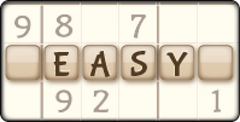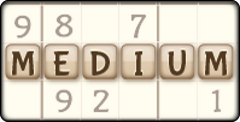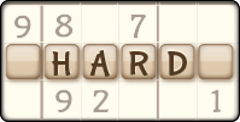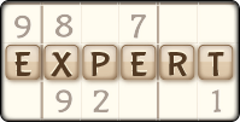Sudoku: Beyond the Grid - A Learning Adventure
If you’re looking for a brain-stimulating way to pass the time, Sudoku is a great place to start. If you’re not familiar with the popular game, each puzzle has 81 squares that are split into nine blocks of nine squares each. The aim of the game is to fill in the grid so that each square and column and each three by three smaller grid all have the numbers 1-9 in them - without any duplicates.
The game requires the powers of deduction, logic and reasoning, and each game of sudoku has only one way of winning the game. Once you’ve filled in all of the squares following those rules, you’ve won the game.
Because the game is so simple yet so accessible, it has become an immensely popular pastime for people of all ages. But you may be asking where it comes from, and how did it get such an unusual name?
A brief history on Sudoku
Sudoku is thought to have originated way back in 1783 where a mathematician called Leonhard Euler invented a game called ‘Latin Squares' with the same premise of only one way of solving the game. Interestingly enough, he didn't invent it as a puzzle and treated it as a personal project.
It wasn’t until the late 19th century that the popular game you recognise was next seen. It’s said that some French magazine publishers began experimenting with logic-based puzzles, but not all of them were math based, meaning they weren’t true Sudoku puzzles.
Fast forward to 1979 and a retired architect called Howard Garns invented Sudoku as we know it. Unfortunately, he passed away before seeing it become a fast growing global success. Howard was a freelance puzzle maker and its original name was called ‘Number Place’. So, how exactly did people begin calling it Sudoku?
In the mid 80s Sudoku became extremely popular in Japan, and they renamed it to a shortened version of ‘Sūji wa dokushin ni kagiru’, which means ‘the digits are limited to one occurrence’ - for you and me? Sudoku.
People love Sudoku because not only is it a challenging pastime, but it’s incredibly satisfying to complete. Not only that, Sudoku provides people with critical thinking skills, and has been known to be extremely successful in a classroom setting to build confidence to complete challenging tasks for students.
How Sudoku is beneficial in the classroom
It’s not clear exactly when, but teachers and educators all around the world soon began to notice how beneficial Sudoku could be in the classroom. Math is often a feared subject for students and many find it challenging to solve difficult math questions. Introducing Sudoku into the classroom added a challenging but fun way of building up their confidence to take on these challenges. But how else can Sudoku benefit in the classroom?
Problem solving
One of Sudoku’s main benefits is giving people the skills to problem solve without feeling too overwhelmed. The rules of the puzzle are simple and easy enough for students to enjoy, and it encourages students to engage in logical thinking to fill the grid correctly. Not only that, due to the process of trial and error when first setting out at solving Sudoku, the puzzle will also unconsciously promote their problem solving skills.
In addition to that, the challenge of solving this simple game helps students engage more to finish it faster, which also improves concentration skills.
Logical reasoning
Sudoku is far from a game of luck, and this means that players are required to use logical reasoning when filling out the grid. Sudoku relies heavily on logical deduction and can help students fine tune their logical reasoning, which in turn can help them in other areas of the classroom.
Critical thinking
Students are required to use critical thinking in many areas of the classroom, but when it comes to math, some students quickly feel overwhelmed. Math is one of those subjects that isn’t cut and dry and requires critical thinking to solve hard math problems. Playing Sudoku can help refine these skills to apply to challenging math problems.
Memory improvement
If you’re new to playing Sudoku, you may find yourself noting down possible candidates for certain squares to keep track of your progress. As you play more, you’ll notice you drop making these notes as you can remember the information much easier.
Pattern recognition
As mentioned above, when you’re new to the game of Sudoku you’ll find yourself noting down possibilities, perhaps beside the square or even on a notepad. The more you play Sudoku and successfully solve the riddle, the more you’ll notice you don’t need to do this. You’ll begin noticing patterns in the numbers you’re entering, which in turn allows you to complete the puzzle faster.
Fine tuning pattern recognition can be applied to all subjects in the classroom, and teachers that have used Sudoku as a challenge for their students have noticed their students’ pattern recognition skills improve dramatically in a short space of time.
Recall and retention
Recall and retention also comes hand in hand with pattern recognition. You’ll begin to remember which numbers don’t work in certain squares and subconsciously move onto other blank squares with these numbers.
This can be an incredibly useful tool for students, especially in exams.
Improves concentration
If there’s one skill that’s beneficial for students to have, it's concentration, and it’s impossible to solve a Sudoku puzzle without it. Because the riddle requires you to hone in on your logical thinking skills, a break in concentration means students will have to force their brains to restart the analysis.
In turn, the frustration of having to start their thinking process again will train the brain to ignore distractions to solve the riddle.
The great part about Sudoku is that the more you play, the more you’re improving your concentration skills. These skills can be useful in the classroom, at work, or when performing any task that needs proper concentration.
Helps reduce stress and anxiety
Adults and students alike, we all experience stress and anxiety at some point or another. Students may feel particularly stressed or anxious if they are behind in their studies or if they have an exam coming up.
Sudoku can help block out the source of the stress and anxiety. Since the puzzle requires your full concentration, it can be a great way of keeping calm in a stressful situation. It also can be the perfect break to reset your brain to think more logically. Once a Sudoku has been solved, students may even feel that the source of their worries isn’t as overwhelming as it may have seemed before.
Promotes a healthy mindset
Just like physical activity can release endorphins that make us happy, playing Sudoku also has a similar effect. If you’re not stimulating your brain, you’re more likely to dwell on negative thoughts and feelings, making you unhappy.
A happier brain will always perform better, so encouraging students to play Sudoku will help promote a healthy mindset and therefore help them in the classroom.
Encourages healthy competition
While there’s no time limit in the game of Sudoku, completing a puzzle faster than the previous time encourages healthy competition with yourself. Because you use logical and concentration skills in Sudoku, each time you complete a grid you’re fine tuning these skills which means you’ll naturally get faster each time.
Students can use this as a motivator and establish a healthy competition against their previous times. These lightning times will, in turn, reflect in other areas in the classroom and encourage students to have healthy competition in other areas too.
It encourages attention to detail
There’s only one solution for each game of Sudoku, which means a single mistake will lead to failing to solve the puzzle. One single number out of place renders the whole puzzle unsolvable. After a few tries, you’ll soon realize that you need to double check your answers before writing them in the grid.
This can be a great way to teach students that with any kind of work they do, it’s important to double check what you’ve done to avoid silly little mistakes!
Gives a great sense of accomplishment
Sudoku is a self-rewarding game, and completing a grid gives you a great sense of accomplishment and victory. This is especially true as you move onto harder puzzles that you may struggle to solve - you feel even happier when you do.
Giving students a sense of accomplishment in the classroom is important. It encourages them to try harder in the future, which can help improve overall grades and success in life later on.
How can Sudoku improve mathematical skills?
Since Sudoku is a game of numbers, it’s logical to assume that it can help students improve their mathematical skills. But how exactly can Sudoku help in math?
Number sense development
The puzzle requires a broad understanding of numbers and their relationships. Sudoku helps students learn the significance of each number and its potential place on the grid. As you work through different difficulties, your number sense naturally develops which enhances your overall numeric knowledge.
Students can use Sudoku to enhance their number sense. This can be particularly helpful to those that struggle in math as it can help bring their knowledge range up to join their peers.
Basic arithmetic
When solving a Sudoku grid you’re subconsciously using basic arithmetic. You’re required to add, subtract, multiply and divide mentally as you place numbers within the puzzle. Because you’re using your arithmetic skills for something recreational, you don’t realize you’re actually improving your numeric skills in the process.
When students are solving a Sudoku they are also doing the same thing - building their arithmetic skills. Again, this can be useful for those that might struggle with math!
Algorithmic thinking
Sudoku requires you to approach the grid in a systematic and problem solving way. As you progress through the puzzle, you naturally develop a set of step-by-step procedures (or algorithm) to tackle different levels of the riddle.
Students can apply this not only to math or in the classroom, but in various real-life problem-solving situations throughout all walks of life.
Logical strategy forming
We’ve touched on this briefly earlier on, but students can learn how to analyze patterns, eliminate possibilities, and make informed decisions based on the information they already have. Practicing these important life skills by playing Sudoku allows you to fine-tune your skills and use them in other areas in life.
Sudoku for all ages
One of the best things about Sudoku is that it’s adaptable, making it an enriching and beneficial experience for students of all age groups. Let’s take a look at how Sudoku caters to all age groups.
Elementary
In elementary school you’re just entering the world of education, and Sudoku can serve as a great introduction to critical thinking for younger students. Using simplified puzzles that are tailored to the cognitive abilities of children this age, students are able to develop basic logic and number recognition skills. The visual element of Sudoku paired with its numerical element make it an engaging tool to kick off math skills in students.
Middle school
As students progress to middle school, Sudoku can then become more intricate to challenge the brain further. Completing Sudoku puzzles will challenge students to apply logical strategies and fine-tune their problem solving skills. This can be achieved by moving to grids with more squares and complex patterns. Middle school students are introduced to more exams and higher expectations, and Sudoku can help develop more enhanced cognitive abilities to tackle this head on.
High school
When students hit high school there is much more expected from them. An even more complex version of Sudoku can be beneficial in helping students enhance their logical reasoning and analytical skills. From algebraic principles to geometric patterns, Sudoku can help students with their perseverance to tackle more challenging problems.
Beyond high school
Regardless of whether students choose to pursue further education or not, Sudoku can be very beneficial as a ‘maintenance’ tool for the brain. The benefits extend all the way through adulthood into your senior years.
Those who play Sudoku regularly have been proven to show a higher level of concentration, better memory and have held onto their cognitive function for longer than those that don’t play it.
Are there any drawbacks to Sudoku in education?
It may all sound a little too good to be true, and as with any kind of educational tool you must take into consideration the drawbacks that may come with it.
Too much of a good thing isn’t beneficial all of the time
While Sudoku is an incredibly powerful tool that comes with many cognitive benefits, too much of one single type of puzzle may limit the diversity of skills that students need to develop. Using just Sudoku could potentially neglect other important aspects of math and critical thinking.
It’s important to find a balance by using a variety of puzzles that complement each other when it comes to learning.
Potential for frustration
Sudoku can be a frustrating puzzle to solve, especially at higher levels. Because of the frustration students may experience while trying to solve a Sudoku puzzle, it may hinder them having a positive learning experience. Feelings of frustration can also lead to lack of concentration and higher stress and anxiety levels.
While Sudoku can be very beneficial in doing the complete opposite, it’s important to monitor how students react and adjust the difficulty levels if it’s too frustrating.
How can we address these challenges?
While the above points are valid, that doesn’t mean Sudoku is out of the picture. There are ways to address the challenges and still use Sudoku as an effective learning tool.
Switching up puzzle types
You can avoid overemphasis on Sudoku by introducing a variety of logic and number based puzzles into the students’ curriculum. This might be crosswords, logic grids and other mathematical games. Adding diversity into the puzzles given to students promotes a wider range of skills and gives students a more well-rounded approach to problem solving.
Provide support and guidance
While Sudoku can be enjoyed by anyone at any age or time, it’s important to realize that students have different abilities, so it’s important to monitor their reactions and then offer support and guidance. You should start with very simple puzzles to analyze how much each student can handle and then increase its difficulty.
Another great way to provide support and guidance is to encourage students to share their strategies and explain their ways of thinking to help inspire other students that might be struggling. While Sudoku is usually something that’s played alone, there’s no harm in helping eachother out every now and then!
Conclusion
Embracing Sudoku in education is not just a fun activity to do every now and then; it’s an investment in the intellectual growth and development of students of all ages. So, the next time you decide to pick up a Sudoku puzzle, think of all of the benefits you’ll be reaping!
Sudoku Levels
Seasonal Sudoku Games
More Games
Sudoku News
Disclaimer
DISCLAIMER: The games on this website are using PLAY (fake) money. No payouts will be awarded, there are no "winnings", as all games represented by 247 Games LLC are free to play. Play strictly for fun.





































